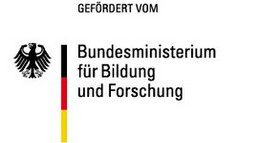Internationale Grundschul-Lese-Untersuchung (2011) / Progress in International Reading Literacy Study (2011)
IGLU 2011 (Internationale Grundschul-Lese-Untersuchung) / PIRLS 2011 (Progress in International Reading Literacy Study) is a school achievement study initiated by the IEA (International Association for the Evaluation of Educational Achievement).
Funding


Project description
IGLU-PIRLS is an international comparative study of pupils' reading comprehension at the end of the fourth grade, with the aim of obtaining reliable information on the knowledge and skill level of pupils in the participating countries. The aim is to achieve a lasting improvement in the quality of schools and teaching, with IGLU-PIRLS helping to formulate concrete recommendations for action to support and optimise schools.

56 states and regions or education systems took part in IGLU-PIRLS 2011, 9 of them as benchmark participants. The Federal Republic of Germany participates in this study by decision of the Standing Conference of the Ministers of Education and Cultural Affairs of the Länder in the Federal Republic of Germany (KMK) and in accordance with an agreement between the KMK and the Federal Ministry of Education and Research (BMBF).
In order to be able to show development trends, IGLU-PIRLS is repeated every five years. With the 2011 survey, IGLU-PIRLS was conducted for the third time, although Germany had already participated in the first two cycles (IGLU-PIRLS 2001 and IGLU-PIRLS 2006).
In 2011, the survey date of IGLU-PIRLS coincided for the first time with TIMSS (Trends in International Mathematics and Science Study), also an IEA study. In Germany, both studies were conducted with a common sample and thus performance values in three competence domains were determined for the participating pupils.
The main survey was conducted in early summer 2011 in all 16 states of the Federal Republic of Germany. A sample of fourth grade pupils from 198 primary and special schools, representative for Germany, was examined, with about 4,000 children participating.
Lead researcher at IFS
Publication of the results
The publication of the IGLU 2011 results took place on 11 December 2012.






![[Translate to English:] [Translate to English:]](/storages/ifs-ep/_processed_/8/5/csm_AdobeStock_412860748_9a2dbb816c.jpeg)
